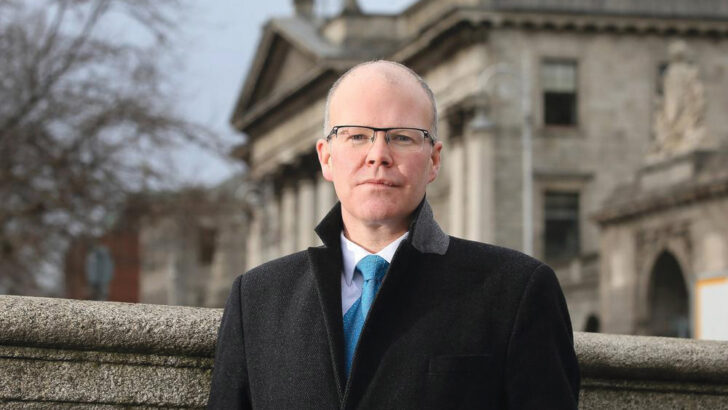So, the referendum debates go on. The media coverage is increasing, though I’m not so sure it’s that enlightening.
Today with Claire Byrne
(RTÉ Radio 1, Wednesday) gave plenty of time to it and was well balanced, though it became overly fractious. Minister Thomas Byrne struggled to define ‘durable relationships’. He said it would be “other relationships that will be recognised as founding the family”, whatever that means.
He added that it would comprise other relationships already recognised in Irish law, such as co-habitation, single parent families and “and the wide variety of relationships in Irish society” – rather vague I thought.
As Peadar Tóibín TD said later, the Government may want to keep the definition “mobile”. You can guess why. Deputy Tóibín referenced the “sloppy language” in the proposed amendments, with implications for taxation, social welfare and succession.
He criticised the Government for not engaging in pre-legislative scrutiny, for refusing amendments in the Seanad, and for not acceding to Senator Michael McDowell’s request to see the advice and discussions in Government on the implications of the wording. He referenced the “virtue signalling meaningless husk of an amendment”.
Orla O’Connor of the National Women’s Council claimed the existing wording excluded thousands, eg families not based on marriage, and she believed “absolutely” that the proposed changes really did include them. Brenda Power, advocating a NoNo vote was concerned about how ‘durable relationships’ would be defined, reckoning it would have to be a romantic context, thus excluding single parents not in such a relationship.
Minister Byrne raised the temperature for some strange reason by criticising “the same voices” who opposed referenda every time and who introduced “red herrings”. He accused journalist Brenda Power of not supporting recent referendum votes, whereupon she insisted she did.
That really got her goat: “how dare you come in here so ill-informed!” She said this was an example of the misinformation coming from the Yes side – labelling the No voters as “right wing conservative God-botherers”!
Sheepishly Minister Byrne accepted her word. But he didn’t help his case by saying that Irish people won’t countenance waking up after a referendum No vote and seeing headlines around the world saying we’d kept the outdated language in the Constitution.
Actually, I think they’re finding it hard enough to drum up referendum interest in this country, never mind abroad. Presenter Claire Byrne asked an incisive question: if the current wording has delivered nothing, so why would new wording deliver anything?
I was reminded of this on The Tonight Show (Virgin Media One, Wednesday) when presenter Ciara Doherty ably quizzed Minster Roderick O’Gorman. Despite his concerns about ‘misinformation’ and ‘disinformation’ I’m not so sure how reliable the information was in his own contribution.
He seemed the think that to add ‘shall strive’ (to do more for families and carers) was a big improvement, conferring “obligations” on the State. At the moment, he said, we have “nothing”. Actually, the current wording says that the state “shall … endeavour”. Hardly ‘nothing’, and surely just as effective (or ineffective) as ‘strive’.
The Minister might also have a word with his colleague Minister Catherine Martin. She had tweeted that the Constitution says a woman’s place is in the home. On It Says in the Papers (RTÉ Radio 1, Sunday) a report from The Mail newspaper was referenced – it reported that Electoral Commission Chair Judge Marie Baker had said that “the Minister is wrong”.
Another presenter that did well was on Ayesha Hazarika (Times Radio, Saturday). Prompted by a UK report into the increase in antisemitism she asked to what extent one could be critical of the Israeli Government without being antisemitic.
Dave Rich of the Community and Security Trust had expected an increase after the October 7 Hamas attack, though I’d say it was more to do with Israel’s ongoing and disproportionate attacks on Gaza. Apart from that I think he was very much on the ball.
He didn’t have a problem with that day’s pro-Palestine protests in London – that was normal politics – but targeting Jews as a race, or individual Jews, was wrong. For example, protesting outside synagogues on a Saturday morning when they were at prayer, or abusing them in the street. One shouldn’t assume that any race was a homogenous group with all the same ideas and sympathies.
It struck me that for Christians to be antisemitic is particularly offensive seeing as how Jesus, Mary and the apostles were Jewish.


 Brendan O’Regan
Brendan O’Regan Aontú leader Peadar Tóibín has described the March 8 referenda as meaningless.
Aontú leader Peadar Tóibín has described the March 8 referenda as meaningless. 